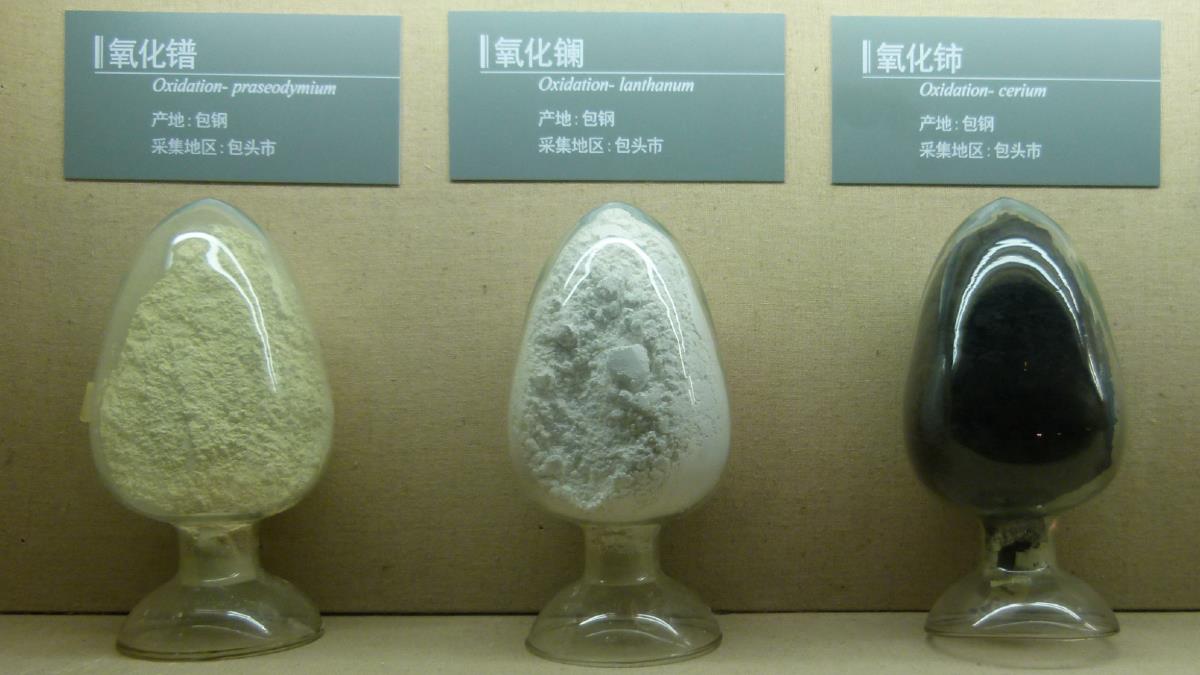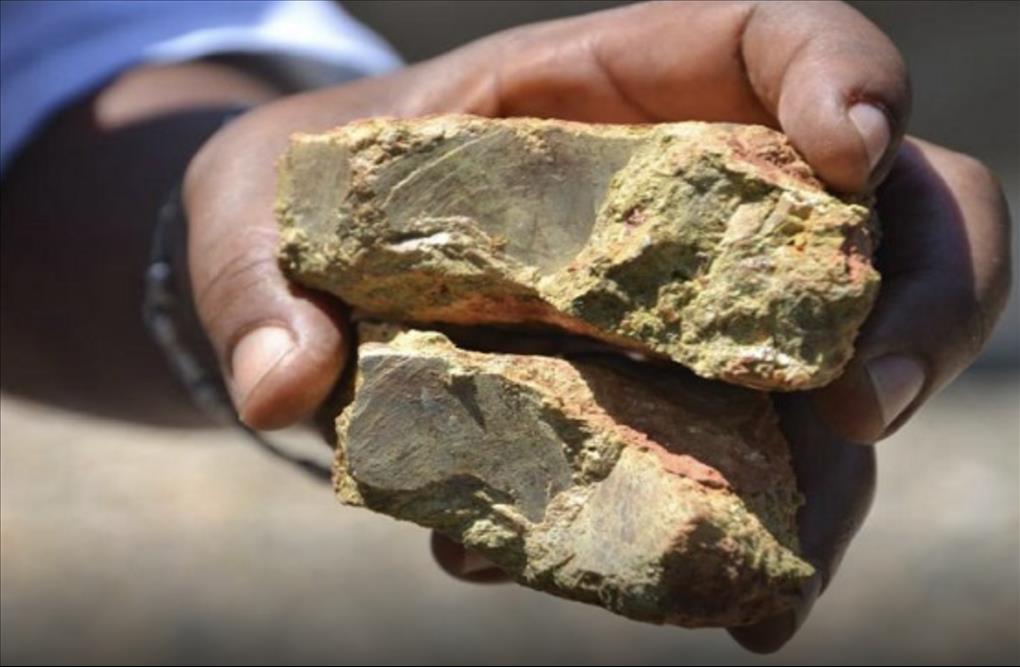
The Rare Earths Race Is Already Over And China Won
As Washington escalates its fight to reduce dependence on Beijing, seen in a new critical minerals agreement signed with Australia on Monday, the reality is becoming clearer that control of the materials that power the modern world is tilting further towards China, not away from it.
The US has launched an aggressive campaign to reclaim its supply chains. President Donald Trump's administration has poured billions into domestic and allied mining projects and announced plans for a strategic mineral reserve.
Permitting rules are being cut, environmental restrictions eased and subsidies introduced for new mineral processing plants. It is a dramatic show of intent, but one that may have be too little, too late. China's lead is not only vast but structural.
Beijing has spent decades building dominance across every link of the rare earths chain, from extraction to refining to manufacturing. It now controls about 70% of global mining output and close to 90% of processing capacity.
These minerals are the hidden engines of the digital and green economies. They are found in smartphones, electric vehicles, wind turbines, semiconductors and precision-guided defence systems. Without them, modern industry slows to a crawl.
While Washington accelerates its catch-up plan, China is tightening its grip. New export controls introduced this year mean companies must now seek government approval before shipping magnets or alloys that contain even trace amounts of Chinese-sourced rare earths. Five more critical elements have recently been added to the restricted list.
This is economic statecraft at its most effective. Beijing understands that controlling supply means influencing markets, and influencing markets means shaping strategy far beyond its borders.
Latest stories
G7, EU mull price floors over China's rare earths curbs

AUKUS makes sense – except for the submarine deal

Beyond blowing up narco boats: US needs a counter-cartel strategy
The imbalance goes beyond minerals. China has built deep integration between its resource sector and its manufacturing ecosystem. The same provinces that refine rare earths also produce batteries, electronics and renewable energy technology.
This vertical alignment gives China a cost and speed advantage that no Western economy can match. In contrast, American efforts remain fragmented, dependent on private contractors and complex permitting regimes, and political cycles that interrupt long-term planning.
China's dominance was no accident. Beijing identified rare earths as a strategic resource as far back as the 1980s. It cultivated expertise, trained engineers and accepted environmental trade-offs that other countries avoided.
While Western economies were outsourcing and deregulating, China was stockpiling capacity. It now has the ability to flex that capacity as a geopolitical instrument, shaping supply and prices to suit its national interest.
The risk for Washington is that its intervention will increase volatility rather than reduce it. By imposing tariffs, subsidizing domestic producers and building strategic reserves, the United States is politicizing the market in a way that creates uncertainty for global manufacturers.
Companies that rely on stable access to materials for clean energy and technology are now caught in the crossfire. Prices are swinging on policy announcements rather than fundamentals, and that unpredictability favors the player with the deepest control of supply: China.
The irony is that many of the countries now backing Washington's drive for“resource independence” are still dependent on Chinese expertise and technology to build their alternative supply chains.
Even new mines in North America and Australia often send raw materials to China for refining. The West may own the rocks, but China owns the chemistry.
The investment implications are profound. The reorganization of the global mineral trade is driving a new industrial cycle. Capital is flowing into exploration, refining, recycling and alternative materials research.
Yet while Western projects chase scale, China continues to expand into Africa and Latin America, securing long-term contracts for lithium, cobalt and other critical mineral inputs.
Its financial institutions and state-owned enterprises are coordinating to guarantee future access. The result is that while others race to catch up, China is already locking in the next generation of supply.
The numbers tell the story. According to recent data, China's rare earths exports fell by more than 8% year on year, not because of declining capacity but because of deliberate restriction.
At the same time, its domestic consumption is rising as its electric vehicle and renewable energy sectors surge. It is increasingly using its own output to feed its industries rather than the world's. That transition from global supplier to self-sustaining consumer makes Beijing's position even stronger.
For investors, this shift creates both opportunity and risk. Rare earths and strategic minerals are becoming the foundation of a new asset class that sits between commodities and technology. Prices will move on policy as much as on demand.

Sign up for one of our free newsletters
-
The Daily Report
Start your day right with Asia Times' top stories
AT Weekly Report
A weekly roundup of Asia Times' most-read stories
Every export restriction, every state acquisition, every new alliance will have an immediate market effect. The volatility will be intense, but for those who position early and with discipline, the rewards will be substantial.
For governments, the lesson is one of foresight. China's success is not simply about resources; it is about strategy. It saw early that control of physical inputs would define the balance of economic power in the 21st century.
It built the capacity, trained the workforce and created the regulatory leverage that now underpins its geopolitical influence. Replicating that structure will take decades, not years. The race for rare earths will define 2026 and beyond. It is reshaping alliances, redrawing trade flows and redefining how investors think about security and growth.
The US can spend and legislate, but China has already built. That is why, as the world enters this new era of resource competition, it is China that has the upper hand. The realization of that fact is beginning to ripple through financial markets, and it will influence investment decisions across every major economy.
Control of rare earths is control of modern life itself. From the batteries that store power to the microchips that drive progress, every major technological advance depends on a supply chain that China already commands.
The rest of the world is only now beginning to understand how costly that dependence will be to reverse.
Sign up here to comment on Asia Times stories Or Sign in to an existing accounThank you for registering!
An account was already registered with this email. Please check your inbox for an authentication link.
-
Click to share on X (Opens in new window)
Click to share on LinkedIn (Opens in new window)
LinkedI
Click to share on Facebook (Opens in new window)
Faceboo
Click to share on WhatsApp (Opens in new window)
WhatsAp
Click to share on Reddit (Opens in new window)
Reddi
Click to email a link to a friend (Opens in new window)
Emai
Click to print (Opens in new window)
Prin

Legal Disclaimer:
MENAFN provides the
information “as is” without warranty of any kind. We do not accept
any responsibility or liability for the accuracy, content, images,
videos, licenses, completeness, legality, or reliability of the information
contained in this article. If you have any complaints or copyright
issues related to this article, kindly contact the provider above.


















Comments
No comment